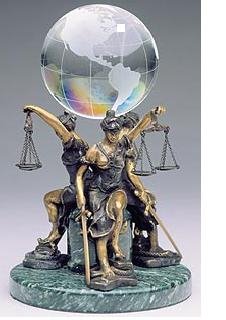§
Here's one for all my law school criminal litigator friends.
A Nebraska judge, upon motion by the defense in order to "keep the trial fair," has now decided that the use of the words "rape" and "sexual assault" by a witness in a "sexual assault" case are prohibited. It was reasoned that the terms "rape" and "sexual assault" represent conclusions, the attainment of which are the exclusive function of jury, not witnesses, and to permit the use of such terms would “invade[s] the duties of the jury” and “create[s] unfair prejudices for the defendant.”
On the other hand, when the prosecution motioned to have the terms "sex" and "intercourse" banned as well, because such terms are viewed as consensual, the judge denied the motion, and after 13 hours of testimony by the victim, further banned the words “victim” and “assailant.” WorldNetDaily
So, in essence a injured party cannot express in words that she was the victim or that the defendant raped her while the defendant gets to simply say he had intercourse with the women or sex with (her name).
Again from the utilitarian view, what statement is this judge making? Is there no difference in hearing the victim say "he raped me" as opposed to "he forced me to have sex" or "he held me down and had intercourse with me?" The jury will never hear the forbidden words until instruction from the judge before deliberation. Does this ruling cause the “facts” to be played to favor the defendant? Is the prosecution being afforded the ability to adequately conveying the facts to prove its case or will the case “turn on the facts?”
Cheers ~
Subscribe to:
Post Comments (Atom)

No comments:
Post a Comment